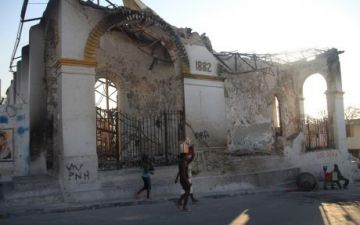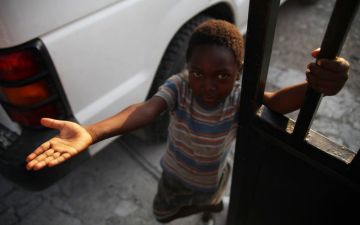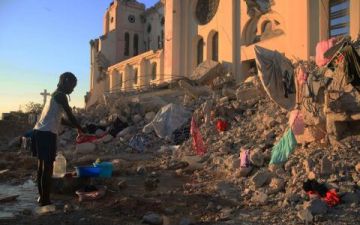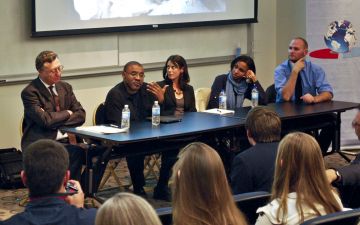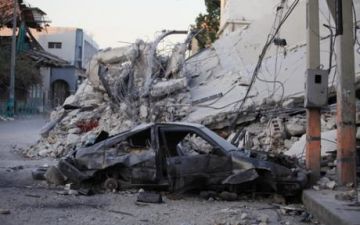The people of Port-au-Prince will forever measure their lives in two parts: before and after the earthquake. As the ground shook on the afternoon of January 12, buildings toppled and crumbled, crushing thousands. An estimated 200,000 people are dead, many of them still entombed in the rubble.
The post-quake pictures of Haiti are overwhelmingly tragic, as images of Haiti generally tend to be. Hundreds of thousands were displaced, most of them already poor and marginalized, from the slums of City Soleil and La Saline. What is remarkable is that in the weeks since the earthquake, these people have come together to form new fully-functioning communities around their battered city. They have built their shacks with wood, sheets, plastic and blankets. A faithful people, they thank God for sparing them, rather than denouncing him for forsaking them. They press on, hoping that the government and aid agencies will help, but recognize that if they are to rebuild their lives, they must do so on their own.
There is a Haitian saying, "Dèyè mòn, gen mòn." Beyond mountains, there are more mountains. Once you have survived one obstacle, there is always another to overcome. Yes, Haiti is the poorest nation in the Western Hemisphere, with a tragic history of ills, both natural and manmade, but her people, undaunted by the cruel blows of fate, continue to climb.
The Pulitzer Center's reporting on HIV/AIDS in the Caribbean was made possible with support from the MAC AIDS Fund.
